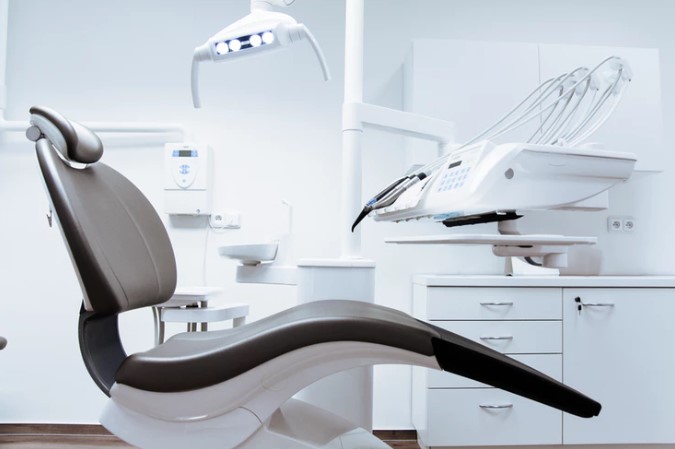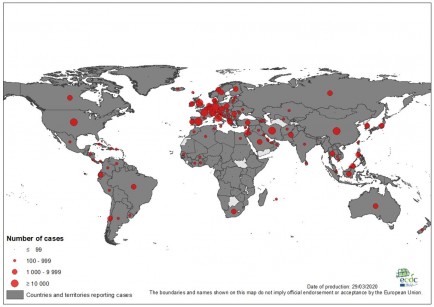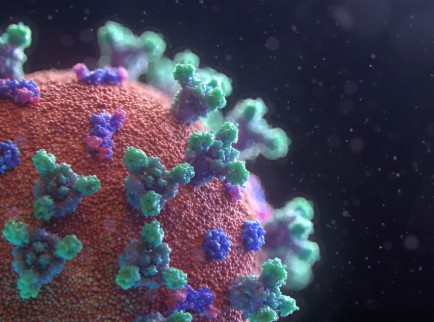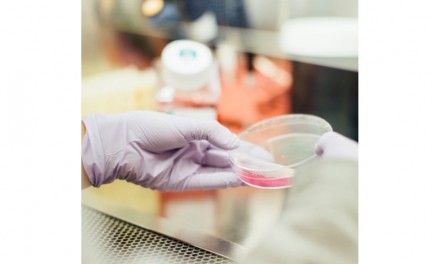Teeth are perhaps the most neglected part of our body. May be we assume them to be clean as we brush every day. But know what? Teeth are one of the most vulnerable parts to be attacked by bacteria. They become more vulnerable when you are pregnant. Vomiting due to morning sickness, cravings for sugary foods and retching can all lead to decayed teeth and eventually tooth extraction during pregnancy. Here, MomJunction will tell you about the oral problems during pregnancy, and if you should get your tooth extracted.
Common Oral Problems In Pregnancy
Hormonal changes during pregnancy can give rise to new oral problems or worsen the existing ones. In addition to tooth decay, periodontal diseases are also caused due to the bacterial infection of the gums and bones surrounding the teeth.
- Pregnancy gingivitis
It leads to the inflammation, tenderness, and swelling of the gums. Also, your gums may bleed when you brush or floss. You need to see a dentist to avoid severe gum diseases. The dentist may recommend frequent dental cleanings to prevent any infection.
- Tooth decay
Cavities are one of the most common dental problems during pregnancy. One of the reasons for tooth decay is the increased intake of carbohydrates. Secondly, morning sickness can increase the acid level in your mouth, wearing away the teeth enamel and thus lead to tooth decay.
- Pregnancy tumors
Pregnancy tumors often develop during the second trimester. The red raspberry-like tumors are the swellings resulting from the overgrowth of tissues between teeth, and they bleed. One of the reasons for the tumors is an excess plaque. They could subside after your delivery. However, in certain cases of dental problems your dentist might ask you to get the tooth extracted to avoid further damage.
Tooth Extraction during Pregnancy
If you have an infected tooth with intense pain, then it is necessary to extract that tooth. Also, periodontal problems lead to loosening of teeth owing to the loss of bone support. Such cases might warrant tooth extraction. Before getting the teeth removed, take an informed decision by looking for the symptoms.
Symptoms That Necessitate Tooth Extraction
If you are having these problems, it could be the right time for you to get the tooth extracted:
- Acute pain in gums and tooth
- Infected or decayed tooth
- Difficulty in eating food
- Swollen gums
- Difficulty in talking
- Gum bleeding
Though the dental problems can arise at any time in your pregnancy, you may have to wait for the right time to get your tooth removed.
When Can You Get Your Tooth Extracted During Pregnancy?
The best time for tooth extraction is during the second trimester. Here is why:
First trimester
Dental procedures are carried out during the first trimester. The period from the third to the eighth week is the time when critical organs develop in the baby. Any medications or stress due to tooth extraction can impact the fetus growth.
Second trimester
The second trimester is the safest period for a tooth extraction. By this time the fetus must have grown considerably.
However, the dentist takes several measures to make you feel comfortable and avoid any problems:
While carrying out the procedure, if you fall into syncope (partial or temporary loss of consciousness due to fall in blood pressure), then you are turned on to your left to mitigate the pressure. When you are seated in a supine or reclined position, it could result in supine hypotension syndrome (decrease in blood pressure) due to the pressure exerted by the fetus on inferior vena cava (a large vein). Therefore, your dentist keeps your right hip elevated to 10 to 12cm on the dental chair.
Third trimester
It becomes difficult for you to sit for a long time in the same position. This, in turn, makes you uncomfortable.
If you are in severe pain and tooth extraction becomes inevitable, then the first month of the last trimester is the best time to carry it out.
While basic treatments, such as tooth extraction, can be done during pregnancy, advanced treatments are generally avoided.
But are the dental procedures safe during pregnancy?
Tooth Extraction: Safety Of Dental Procedures While Pregnancy
Removal of tooth involves taking X-rays and administering anesthesia. Let’s see how safe they are.
X-rays: Tooth extraction would require an X-ray to locate the affected tooth and identify the extent of the decay. During this, a lead apron sheet is used to cover the upper part of the body of the patient to avoid any side-effects of the radiation to the fetus.
Anesthesia: Before tooth extraction, the patient is given a local anesthesia — usually Lidocaine or Novocaine. It is a Category B drug, which means it is safe to use during pregnancy.
The anesthesia enters the placenta but gets filtered out before reaching the fetus.
Your dentist may give you a lesser dose than normal. You can cooperate with him by being calm and stress-free.
According to the Journal of the American Dental Association (JADA), it is safe for pregnant women to undergo dental treatment with local anesthetics.
Study author Aharon Hagai, DMD says, “Our study identified no evidence to show that dental treatment with anesthetics is harmful during pregnancy, and yet so many pregnant women avoid going to the dentist.
“We aimed to determine if there was a significant risk associated with dental treatment with anesthesia and pregnancy outcomes. We did not find any such risk.”
In any case, routine dental health procedures should be accomplished before conception in planned pregnancies and during the middle trimester in unplanned pregnancies. Since both you and your baby will receive the treatment, it is important to consult your gynecologist before starting any procedures or medication.
The doctor is likely to avoid any treatment methods or medications that could put the fetus at risk, especially in women who want to conceive or may have already conceived. Unless necessary, oral and maxillofacial surgeons may not go for elective surgery for pregnant patients. However, they may go ahead with the treatment in emergency cases that involve infection, trauma, and pathology. Any active treatment here must aim at optimizing maternal health without putting the fetus at risk.
Safety of medicines:
Antibiotics and pain medications: Your dentist may prescribe penicillin, amoxicillin, and clindamycin that are safe during pregnancy. Erythromycin is also safe but it is prescribed if the patient’s stomach can withstand it. If you are allergic to any of these medicines, talk to your doctor so that he can prescribe an alternative. Pain medications: Post extraction, the area in your mouth would be painful for a few days. You may use opioid pain medications (codeine, hydrocodone, etc.) on the dentist’s prescription. Nonsteroidal anti-inflammatory agents, such as ibuprofen, aspirin, and naproxen, may be used for shorter durations of up to 72 hours but avoided during the first and third trimesters.
Medicines To Avoid For Dental Work During Pregnancy
Do not take tetracycline (tetracycline, minocycline, doxycycline) either as a pill or topical formulation, because the drug could stain your baby’s teeth You should also avoid fluoroquinolones (ciprofloxacin, levofloxacin, moxifloxacin). During pregnancy, teratogenic drugs like thalidomide and some retinoids are not used as they may cause abnormalities, such as palate and cleft lips, in the baby. Do not go for elective treatments such as teeth whitening or any cosmetic procedures during pregnancy. At the same time do not postpone dental works such as cavity fillings, cleaning or crowns. But what if your wisdom tooth has to be removed?
Wisdom Tooth Pain And Extraction During Pregnancy
During pregnancy, you could experience unmanageable wisdom tooth pain due to gum problems. Factors such as plaque buildup, abnormal growth of the tooth or infections can lead to wisdom tooth pain. In case of severe pain and tooth decay, wisdom tooth is removed just like any other tooth.
How Can You Prevent Dental Work During Pregnancy?
Some precautions can help you stay away from any dental problems during pregnancy. Here is how you can keep your teeth happy:
- Go for regular dental check-ups and cleanings to avoid any deposits in the teeth.
- Cut down on sugary food, as it can cause inflammation or swelling of gums during pregnancy.
- Avoid using mouthwash that contains alcohol. Use ADA approved fluoride toothpaste or floss every day.
- Brush your teeth at least twice a day and floss at least once. Use a soft brush to reduce the irritation of gums and linings.
- Avoid gum grafting or dental blings during pregnancy as grafting can lead to excess bleeding, and blings result in irritation or allergic reaction.
- In addition to other health issues, smoking also leads to periodontal problems. Therefore, stop smoking during pregnancy.
Dental care is something you should not ignore during pregnancy because it is necessary for your overall health. Have regular visits to the dentist, and get your teeth cleaned. Maintain a healthy oral routine at home so that you can sail through your pregnancy with a broad smile.
Original article: https://www.momjunction.com/articles/tooth-extraction-during-pregnancy_00358208/




























Comments